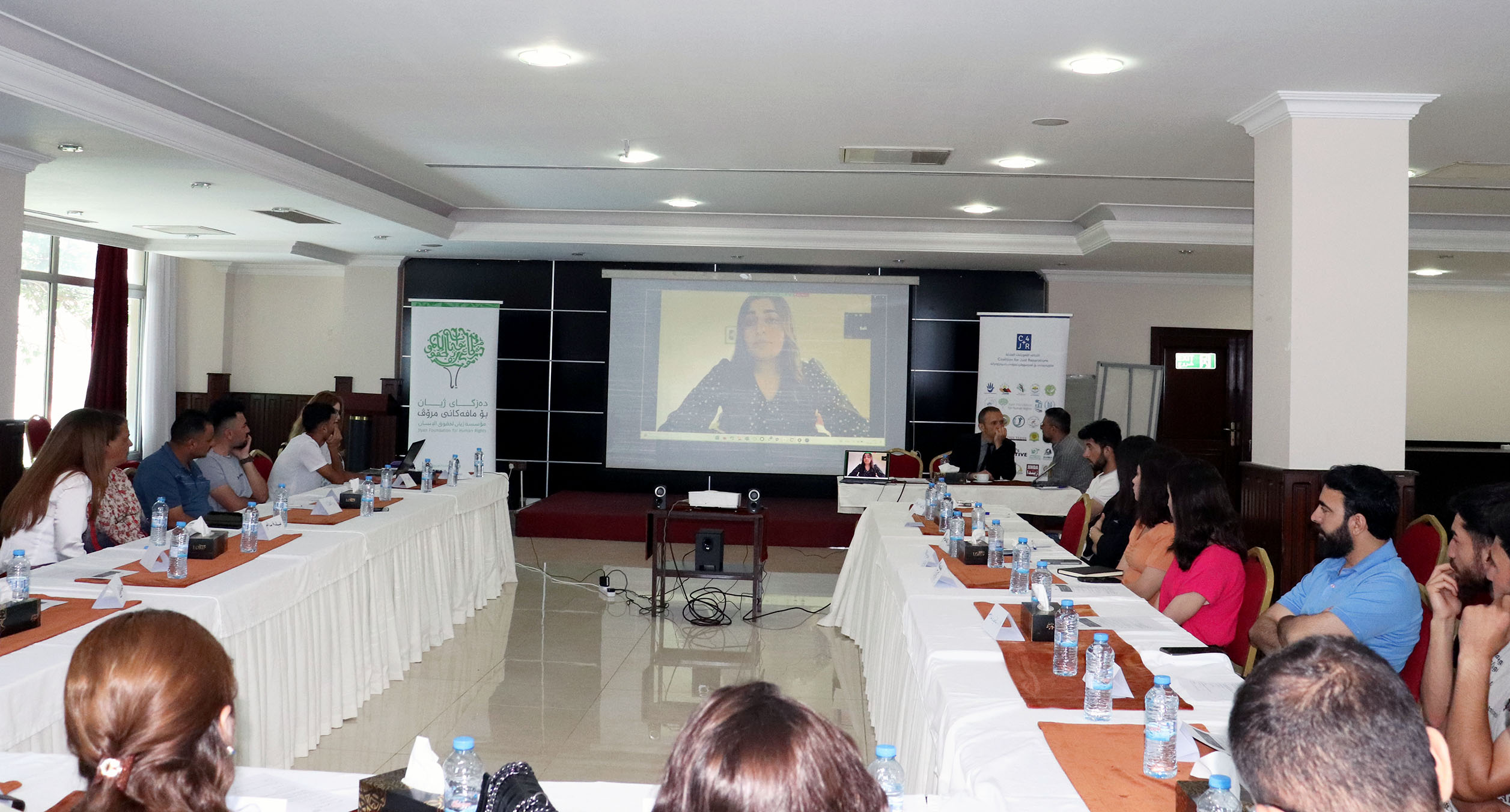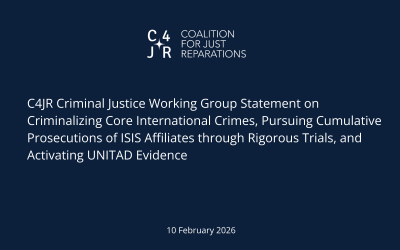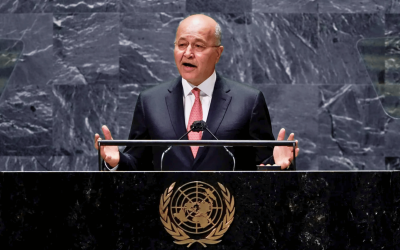On June 19, 2023 (International Day for the Elimination of Sexual Violence in Conflict), C4JR Working Group on Ethical Engagement with Survivors met in person in Duhok. A key objective for this meeting was to engage in direct consultation with survivors, including members of the C4JR Survivors Council, who had expressed concerns about the coalition’s public advocacy on removing the imposition of an additional requirement instructing survivors to file a criminal complaint to support their applications under the Yazidi [Female] Survivors Law (YSL). This requirement was introduced by the Committee (an eight-member body established under the YSL to verify applications) after the start of the application process and, according to C4JR’s reading of the YSL, has no basis either in the text of the law or its associated bylaws. It has also proven to be a considerable barrier for many survivors hoping to access their promised reparations under the YSL.
Despite the burdensome nature of this requirement, some survivors living inside Iraq, including members of the C4JR Survivors Council, believe it should be maintained as a safeguard against false applications and to support the pursuit of criminal accountability for members of ISIL. Given the disparity in survivor perspectives and C4JR’s commitment to ensuring a survivor-centered approach to public advocacy, it was of utmost importance to have an in-person sit down with survivors, hear them out, explain the rationale behind C4JR’s public advocacy, and search for common ground. The meeting was attended not only by interested members of the Survivors Council and staff of the C4JR secretariat but also representatives of diverse survivor groups and C4JR member organizations, including DAK, Farida Global Organization, Yazda, SEED Foundation, Jiyan Foundation for Human Rights, and Free Yazidi Foundation. In addition, Farida Khalaf, the founder of Farida Global Organization, speaking on behalf of Yazidi survivors residing in Germany, made a video message that was screened during the meeting.
The below statement, an outcome of the discussions held at the meeting, represents a
SHARED UNDERSTANDING
of all attendees of the June 19 consultation with survivors and NGOs on important issues pertaining to the YSL application and implementation process
All participants recognized the need to:
- Speak with one voice and find common ground to move forward with YSL implementation.
- Double the efforts to search for missing persons, identify remains of those that perished and return them to their families, and establish a criminal accountability mechanism to prosecute ISIL perpetrators for international crimes committed in Iraq.
- Expedite processing of YSL applications and the delivery of promised services and benefits
- Ensure the protection of survivors and the confidentiality of their information, data, and documents, in line with Article 6 of Bylaws No. 4 from 2021, by strengthening procedures that govern the management, storage, and processing of case files.
- Promote survivor-centered and trauma-informed communication with survivors that apply under the YSL.
To express solidarity towards all those harmed by ISIL, keep the momentum necessary for YSL implementation, and focus on specific services, the participants agreed to advocate jointly:
- For establishing an appropriate and transparent screening mechanism, in line with applicable laws, to ensure that the Committee, GDSA, and other Iraqi institutions do their due diligence to prevent, uncover, and sanction applicants who seek to submit false applications or forged documents with a view of obtaining illicit financial gain.
- In favour of the position that survivors who are unable to submit investigative papers due to their current location, fear of re-traumatization, stigmatization, safety concerns, or self-incrimination must not be coerced to do so. In this case, the veracity of their claims should be examined against all evidentiary means available, including witness statements provided directly to the Committee, interviews with the Committee, documentation issued by international and national entities, and all other available evidence, in line with the provisions in the YSL.



